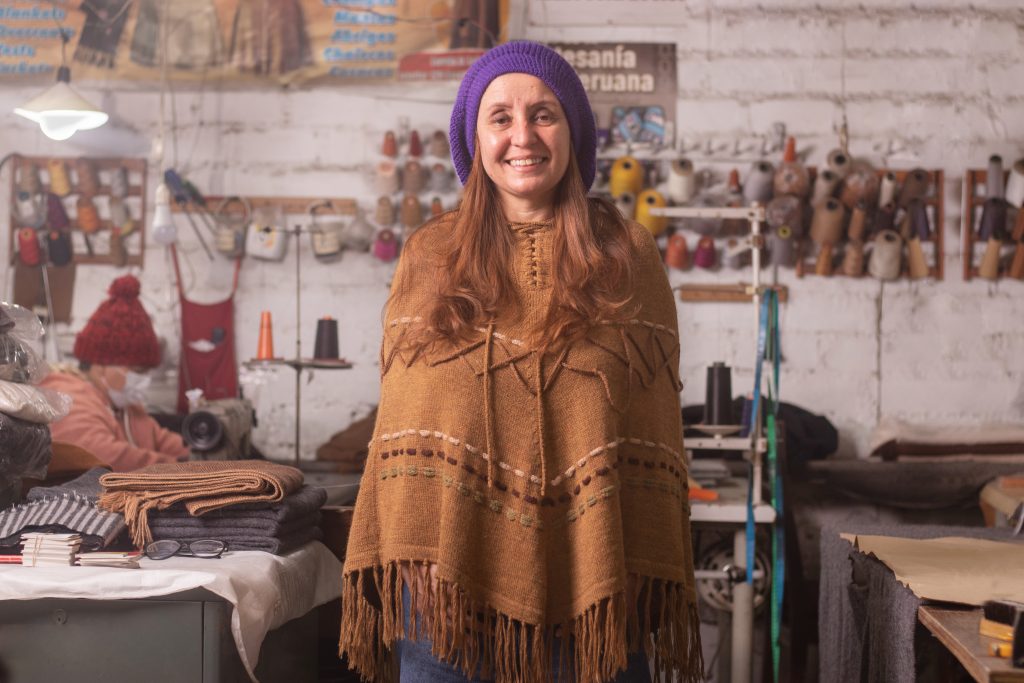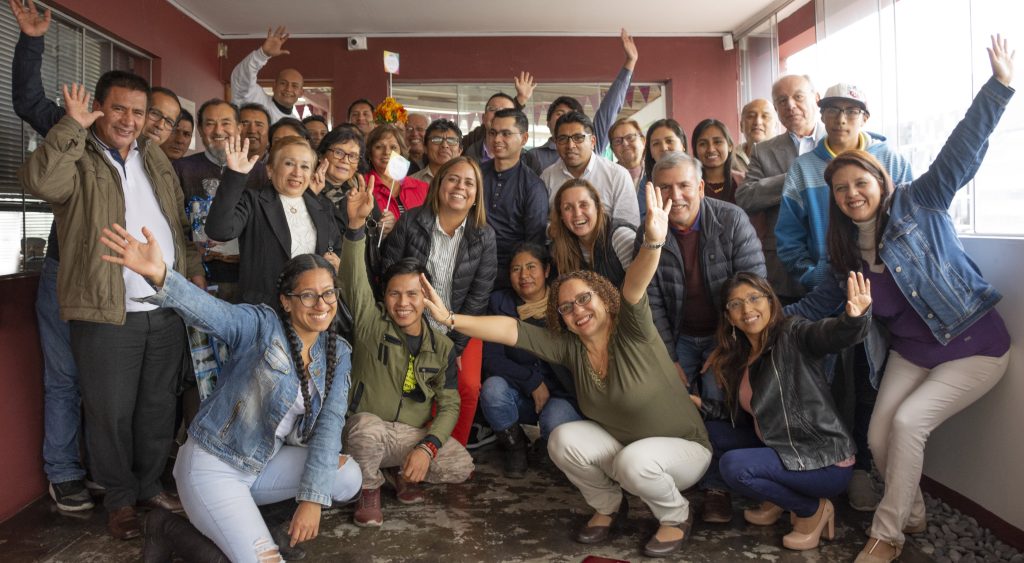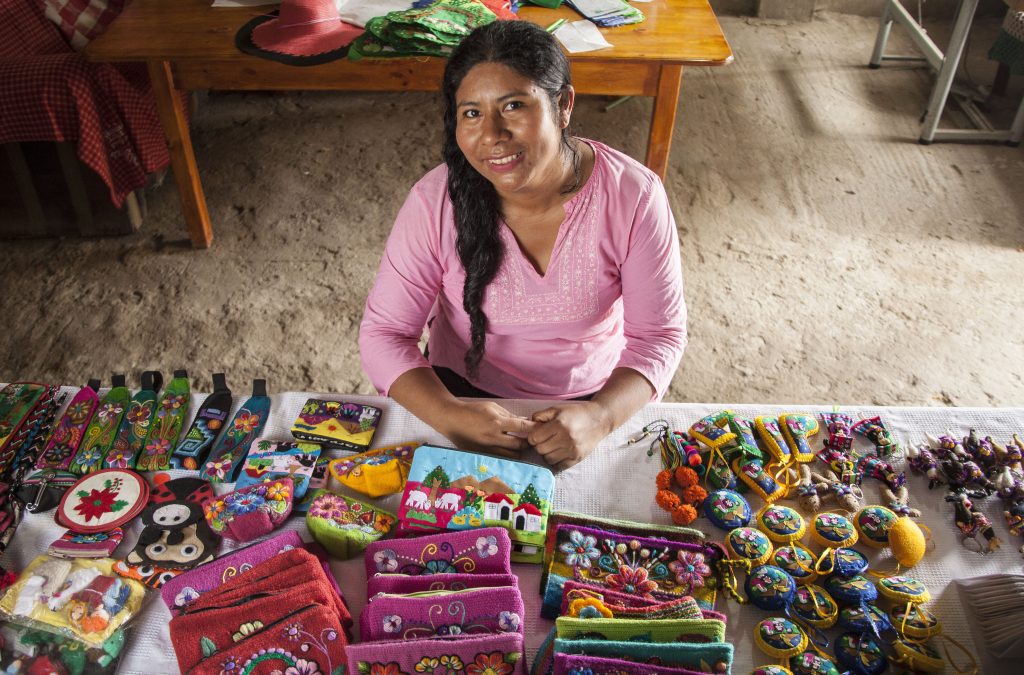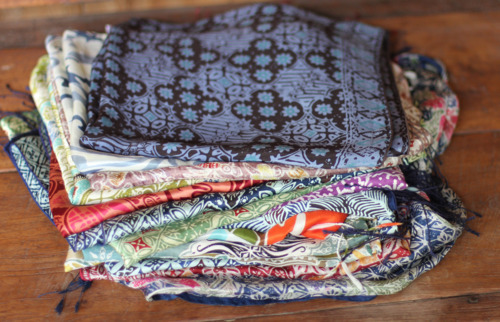
Merlly Calisto Cockburn is Novica’s National Representative in Peru. We spoke with her recently about what it is like to work with artisans in the Andes and beyond.
Q: What is it like to witness — firsthand — artisans’ lives improving as a result of your work?
A: The truth is that you can’t believe how inspiring this work is. Our day-to-day work can sometimes distract us until we almost forget what an impact we’re making. But then you visit an artisan’s workshop, and you again reconnect with the significance of what we’re accomplishing together.
To me, this work is like practicing “earthing,” because when you do it, you realize that those of us involved in this mission – from the customers, to our teams at Novica, to the artisans, we all are connected by the same essence.
I thank the artisans, because they are the ones who today write the history of our people. We no longer have the in-depth writers and historians of our traditional cultures – not to the extent we had before. What are the treasures that generations in the next millennium will prize, collect, and place in museums? The works these incredible artisans are creating now. I share this concept with everyone at Novica Andes. These important successes are the result of teamwork.
Q: From your viewpoint, how does Novica impact artisans?
A: There are so many ways in which Novica positively impacts artisans, but first I want to tell you about the initial impact. Let’s take an imaginary journey. Imagine you live in a village in the Andes, or in a poor neighborhood in a city here. You are at home looking at that old wooden loom on which your parents taught you to weave. Your grandmother, your mother or your father used it, and now you do, too – as the keeper of your family’s heritage.
You imagine all the weavings that you have created, and those you can create with it, but you regret that the only customers are the stores that undervalue your products, or the merchants who sometimes take advantage of your need to earn income for your family. Then you look at your children and think: “My children have to succeed. They need to do better than me.” So then you consider that perhaps your inheritance of the skill of weaving will die with you.
Imagine that your only access to technology is an old prepaid cell phone, and a television without cable. You never had the opportunity to travel outside your country. But you dream that the world knows your art, your heritage, your tradition. This dream seems unlikely.
But unexpectedly you find yourself with the opportunity to break all those barriers that were going around in your head – all of them, through Novica. You realize you can achieve your dream. That your work and heritage will be appreciated, and valued. From now on, what are you going to think when you look at that loom, or when you look at your children? That anything is possible.
Q: Merlly, what is your long-term goal as Novica’s representative in the Andes?
A: To have a Novica Artisan Empowerment Hub in each country in South America. To be able to embrace artisans from the entire continent, from Tierra del Fuego in Argentina, in the south, to Punta Gallinas in La Guajira, Colombia, in the far north.
This involves two major projects. To bring the best of South America’s art to the international market, while at the same time preserving our continent’s many diverse traditions and techniques. This requires that some of our artisans – apparel artisans, for example – develop versatile collections that adapt to the preferred fit and lifestyles of our international customers, while at the same time still showcasing our region’s unique, culturally-rich textile history.
As human beings we have become accustomed to the practicalities new technologies offer us. But craftsmanship will never cease to be prized, for it represents something essential to our core beings. To borrow Martin Luther King’s quote, I have a dream.
My dream is that one day all the world’s artisan communities will be able to connect directly with customers who value their work, and that the artisans will receive fair payment for their work. That’s the change Novica is helping lead.
Q: Merlly, please share something with us about the Novica team in your region.
A: When I started working at Novica in 2001, my experience in leading a team was not significant. But thanks to support from Jose Antonio Echeverria with Novica’s international team, I learned to be compassionate – starting with me, and with my team. I’ve learned to highlight their strengths, and help them to get the best out of themselves. Our team has learned to communicate well, and this has led to each of us really being able to support one another.
I love to see the relationships our team members have with the artisans. Relationships of deep mutual trust and respect. Normally, the regional sourcing or inventory team visits the artisans at their workshops. But I recommend to our team here in Peru that when one of them goes out to visit the artisans’ workshops, to please invite another coworker from the team to go along – someone who does not usually get to visit the artisans at home. This way we share all the experience together, the successes, and seeing where we can improve.
We all learn from the artisans, and this way we don’t lose the connection with our fundamental mission. The last time I visited an artisan, I invited Orlando Burquez, one of our team members who packages customers’ orders, to come with me. This shared experience increases the bonds of friendship and mutual support between all of our team members and our artisans.

Q: Does one particular artisan story come to mind that especially inspires you?
A: The first image that comes to my mind is that of Balvina Huaytalla, a traditional patchwork applique artisan. We had lost contact with her and were worried something had happened to her. One day she came to the office very sick. She was recovering from pneumonia. It was hard for her to breathe, and she could hardly speak. We visited her a few days later to see how she was doing. We placed a specific order with her – funds to help her, essentially. An order she eventually fulfilled with great effort.
The following year we visited her again, and she told us that this order had allowed her to cover the walls of her house with cement, which were originally only bricks, and that thanks to this improvement, the humidity no longer penetrated as much into her house – which eased her respiratory problems, improving her health.

This reminds me that the needs of our artisans are many. I remember when the late Wilfredo Rios was once at the office, touching his knee because it hurt so much. Or the vision problems that Benito Tito had. Or when we helped the Yurivilca family of weavers because their store burned down at a market in their community. Once a couple of artisans who were getting divorced asked us to help them decide and divide between them the designs of the workshop, so that it would be as friendly as possible.
Q: Merlly, please tell us something about yourself.
A: I identify myself as a friendly person with no limits. When I was little, I loved to see the United Nations TV programs, where volunteers help communities around the world. I dreamed of doing that someday. I was presented with some opportunities when I was young, but the economic problems in my family did not allow me to take advantage of those then.
After the death of my father when I was 16 years old, I worked to pay for my studies, and to help my mother, and my younger siblings – so they could also study.
I remember that my father told me, before he died, that to get ahead you must have a lot of patience and not run. That the great achievements were reached by heart, and that I shouldn’t ever work for the government because it was very opportunistic (he worked for the government).
By coincidence, one day I went to a job interview at a garment factory, and I did not qualify for the position. But it turned out that the owner of the factory was the first vice president of Peru, and he hired me to work for the government.
Well, I needed to work. The positive thing is that I worked to promote Peruvian products abroad, and I felt a connection to that. Good thing I took that job, because it was the bridge for me to learn about Peruvian handicrafts, which is why Novica contacted me in 2001 to lead Novica’s Artisan Empowerment Hub in the Andes.
Today I feel that what I dreamed of as a child, when I watched those UN programs, became a reality.
I tend to be a person that when I see something, my head is already flying with ideas to work on it. But life is about learning and constantly growing.
Today I realize that connecting with myself is the most important thing. So I practice yoga, mindfulness, cycling, and do some weights, because I need to control my energy. I like to discover new recipes in the kitchen, and I have returned to painting after almost 20 years.
Rediscovering myself has improved my quality of life and my environment. I am now witnessing that starting with oneself brings great satisfaction. And that is something I am sharing with our team here at Novica Andes. Since most of them are younger, I share these ideas with them, and tell them: I wish I had known this when I was your age. Practice it, because great things are waiting for you.
Nowadays I see the world through the lenses of love and compassion.
Let me tell you something funny. Every day I send a photo to my boyfriend via WhatsApp, of “The most beautiful thing I’ve seen today.” It’s all about viewpoint, isn’t it?
Q: What is your wish for the future?
A: May we human beings reconnect with each other and not lose sight of who we are and where we are. We are part of this beautiful planet, and not because we walk on it. We carry within us its essence. I think that handcrafts and art are great ways to connect from our hearts. Because feeling is the greatest sense we have. It is worth more than seeing, hearing, touching or smelling. Maybe it sounds utopian – in fact it is – but it is enough to experience this once in a while.
Q: Merlly, what are your thoughts about Novica’s new World Peace Project? What does this mean to Novica and artisans in Peru?
A: Novica is always thinking about giving artisans the opportunity to explore their talent, and the opportunity for them to express their vision of world peace has been one of them.
I’ve been amazed to see the stories behind each piece submitted for the World Peace Project. They are all winners. By the simple fact of actively participating, our artisans encouraged their own creative visions, which allowed them to dream and express themselves.
Our team in the office is amazed every day as the works arrive and we listen to the artists’ and artisans’ stories, and the amazingness of the different points of view or ways of expressing it.
We are inspired by a story from artisan Miguel Mejia, for example, who when he went to buy materials for his workshop, someone approached him to steal from him. With compassion, Miguel spoke to that person, even invited him for lunch, and tried to make him understand why that way was not the right one. Finally he bought the weapon that person tried to use to rob him, a knife – and it is that very weapon that Miguel has used in his world peace sculpture!!
Q: Anything else you’d like to add?
A: I want to take this opportunity to address our customers and thank them for being part of this magic. At Novica we feel your love through each purchase – your dream of contributing to a better world. That is why our goal is that regardless of the nature, size or price of each work of artistry, each one carries with it the gratitude of the artisan’s workshop and community.
Thank you for helping Maria Uyauri so she could send her son to university. Thank you for purchasing from Johnny Jimenez, who has been able to build his house. Thanks to you, Abel Rios’s wife was able to have her needed surgery. Because of your support, the artisans of the Tahuayo River in the Peruvian jungle, who call their basket weaving group Hope of the Forest, can improve their quality of life within their community, and better feed their children.




